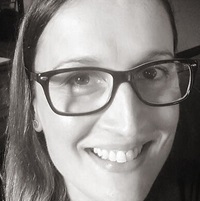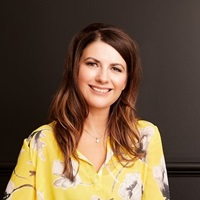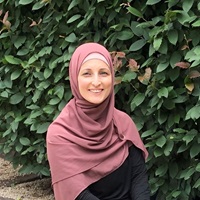We use cookies to compile information about how our website is used and to improve the experience of our website visitors.
You can review and update your cookie setting by clicking "Manage cookies preferences". For more information about the cookies we use, please read our
Cookies and Electronic Marketing Policy.

Alumni Stories : Mediation

Kate Grafenauer
I left the law to forge a new career in mediation
The reality of my day to day legal career always felt at odds with why I chose law in the first place. I wanted to be a lawyer to help people solve problems they couldn’t resolve themselves. But right from the start of my career, something felt off.
As my career progressed, I found that being a lawyer wasn’t as glamourous or exciting as the TV shows implied. Long hours, time pressures, taxing KPIs, no time for much else. The niggling in my brain continued.
Don’t get me wrong, there were some great times. I made fantastic, lifelong connections in law. And there were some wins of course, which felt good. Really good. But it wasn’t enough.
After around 10 years, I considered going to the Bar. I thought this might be my saving grace. Working for myself. Helping people get good results. So I saved like mad to set myself up in chambers and cover my expenses in the initial months. But the doubt remained. Did I really want to do this?
I ended up getting married and put the money towards a house instead; the home we now share with our two gorgeous kids. I started working part-time, seeking roles that enabled me to work more flexibly and remotely. But I felt limited in how much I could help my clients.
Clients would rarely tell me their full story – afraid to pick up the phone lest they be charged. And they were seldom happy with a win because it had cost them so much time and money, and sometimes their marriage or business too. I had to get off the train.
So I quit.
I spoke to several colleagues and they all independently suggested I look into becoming a mediator. Was I prepared to start over? After much deliberation, off I went, back to school.
Within the first few hours of my mediation training, a wave of relief and joy washed over me. I had found my place. This is what I was meant to be doing! I absolutely loved it.
Mediation is a complete flip on litigation. If I could adjust my thinking and retrain my approach to conflict, this was the way forward. I could actually help people, without the cost, stress and time involved in litigation.
I’ve only been on this new journey for two years or so, mediating in several areas – including family, estate, workplace, commercial and neighbourhood disputes.
There have been ups and downs. But I get to do what I love, my way. Mediation is the future for so many people experiencing conflict. It’s cheaper, faster, informal, less stressful, completely confidential. Plus it’s self-determining for the parties as they maintain full control over the outcome.
Win-win! Mediate, don’t litigate!

Zinta Harris
Mediation has helped me create my niche practice
After obtaining my mediation accreditation and completing my training in collaborative practice, I decided to create a niche business that helps clients manage the legal fallout after a loved one dies.
By combining my legal experience with my dispute resolution skills, I’ve found I can give wise counsel to my clients at their most difficult time. Around 60% of our work is alternative resolution of inheritance disputes.
What’s more, as a dual accredited specialist in succession law and business law, my practice is the perfect blend of my skills and passions. Not only can my team help clients resolve contested estates, we can also take care of post-death estate administration work.
But how did I get here? Let’s backtrack a little – to my early days as a legal graduate.
The very first trial I was involved in was a bitter estate dispute. This was my earliest glimpse into how awful litigation can be for all parties, and how an estate can be gouged by huge legal costs in the process. To make matters worse, it was sad to see how dissatisfied the client was at the end even after ‘winning’ her case.
At that point I didn’t know how to change the system, I just accepted that it was the system. But even then, I was thinking there had to be a better way. No doubt it was this first experience that made me the type of lawyer that would try to encourage settlements for clients wherever possible.
However, through most of my career I was taking what lawyers would call ‘a commercial approach’ to dispute resolution. When you achieve a resolution on a commercial basis, all you’re doing is bargaining on figures to achieve a settlement. You don’t fix the underlying issues behind a family’s dispute – so nothing ultimately gets resolved for that family to move on with their lives constructively.
It was only about three years ago that my dissatisfaction with this approach prompted me to look around at what people in other jurisdictions were doing. I learned about the collaborative practice model used in divorce matters and discovered that it wasn’t readily available for inheritance matters. This led me to my new purpose: introducing collaborative practice to wills and estates.
With my accreditation in mediation, I can now help clients resolve disputes over inheritance without destroying family relationships and going to court. I always encourage them to go down a resolution pathway. But if this isn’t possible, I can also help them navigate a settlement within the more traditional litigation framework.
As lawyers, we often assume that it’s all about fighting for what for our clients are entitled to. But if we stop to ask questions about what they really want or need for their future, their answers can be very different.

Ghania Dib
I knew there was a better way after witnessing the family court system first-hand
Mediation wasn’t something I was exposed to as a junior solicitor. It wasn’t part of the firm’s culture and it wasn’t something that we spoke about.
I completed a commercial mediation training in 2011, but didn’t have the opportunity to pursue accreditation.
In 2013, I experienced first-hand how combative and distressing the family law system can be. I knew there had to be a better way; a way for people to avoid being dragged through the family court system… and the mental and financial strain at the end of the process.
I found myself reflecting on the commercial mediation skills I had learnt several years earlier. I wondered if I could utilise and build on those skills to practise family law in a more facilitative and collaborative manner.
In 2018 I completed the Family Dispute Resolution (FDR) course with The College of Law (which I then upgraded to an Applied Masters majoring in FDR and family law). After completing the first subject of my FDR course, I found out that I could complete my mediation accreditation as a separate unit.
My immediate thought was ‘Great – this is my chance!’
So, I sat and passed the accreditation exam and went on to become accredited under the NMAS.
My FDRP and mediator training with The College of Law gave me the confidence to explore other forms of alternative dispute resolution practice.
I’ve been conducting mediations over the past two to three years and it’s become an integral aspect of my practice.
My legal practice focuses on family law, wills and estates and litigation. About a third of what I do is mediation. I love to mediate and have found it to be a highly worthwhile pursuit that aligns with my desire for less adversarial legal processes.
Assisting separating parties and their children avoid the emotionally and financially taxing court process is very rewarding.
I’m looking forward to a future where mediation is at the core of all family law disputes.
